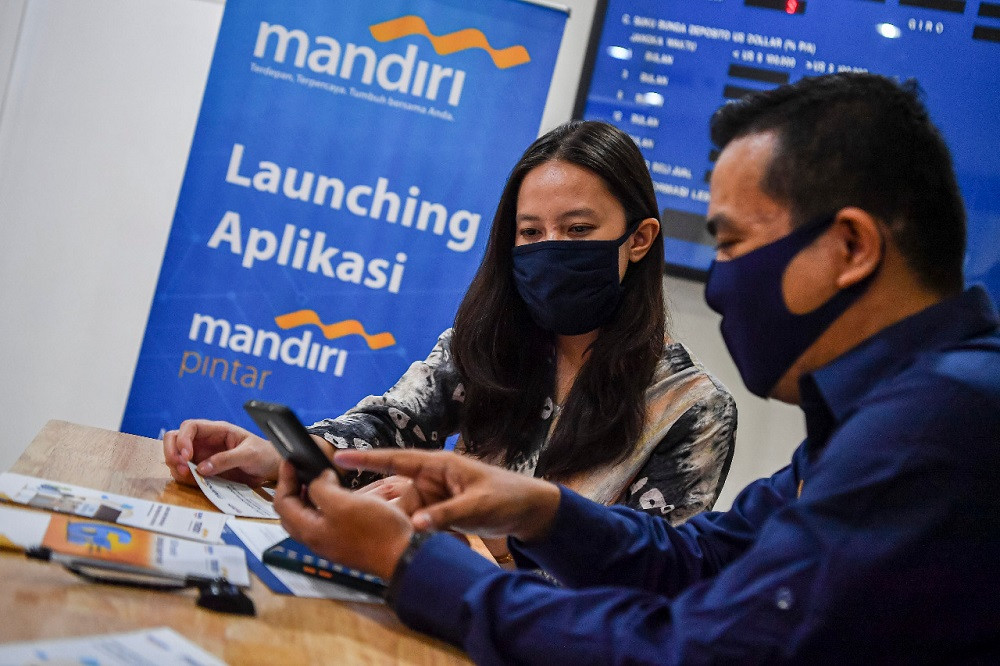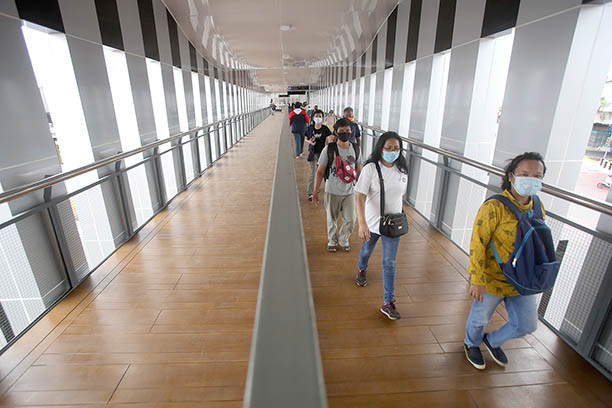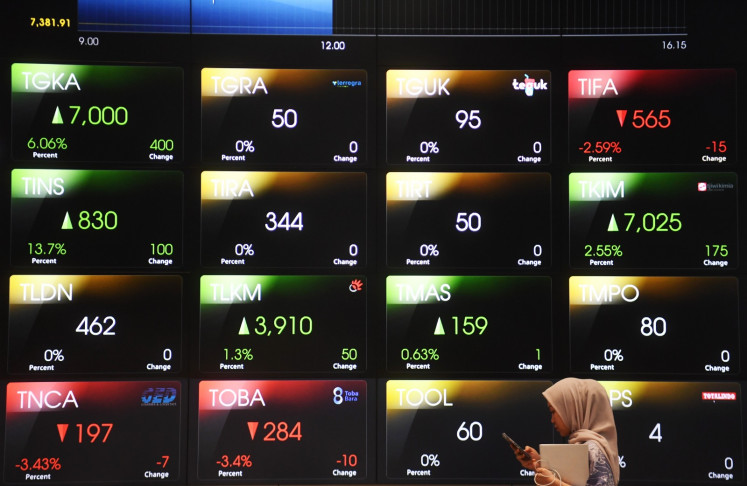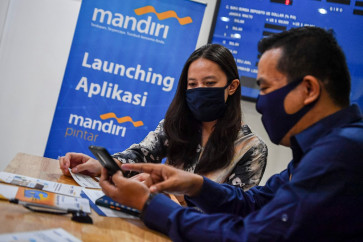Post-pandemic economic recovery: The next chapter
As a developing economy, Indonesia is prone to spillover effects from exit policies in advanced economies. Several externalities and key factors could significantly affect the government’s efforts to ensure a sustainable economic revival.
Change Size
 A teller for state-owned Bank Mandiri helps a customer. (Antara/Nova Wahyudi)
A teller for state-owned Bank Mandiri helps a customer. (Antara/Nova Wahyudi)
T
he COVID-19 pandemic has been going on for almost two and a half years, and the world has started to enter the post-pandemic phase. While economic activities have resumed under the new normal procedures, the road to a full recovery is still very challenging. As a developing economy, Indonesia is prone to spillover effects from exit policies in advanced economies. Several externalities and key factors could significantly affect the government’s efforts to ensure a sustainable economic revival.
As an emerging and developing economy, Indonesia faces a challenging situation in dealing with its post-pandemic fiscal situation. Just like the many other countries that have had to tackle the health crisis over the past two years, Indonesia needs to support the well-being of its citizens by providing pandemic social assistance. This has caused a significant rise in government expenditures and is affecting fiscal conditions.
The situation is worsened by the externalities of the Russia–Ukraine war, which has caused global supply chain disruptions and rising commodity prices. Other factors such as global inflationary pressures and rising interest rates could lead to stagflation and increasing costs of funds. According to a Bloomberg survey, several countries, including advanced economies, have been indicated to be prone to recession, such as Sri Lanka, the United States, New Zealand, South Korea, Japan and China.
Indonesia’s condition remains hopeful, with its manufacturing index, the purchasing managers’ index (PMI) rising to 51.3 in July, the highest point since April. The latest figure also showed 11th straight months of growth in factory activity, while firms increased their workforce numbers and buying levels grew at the fastest pace since January.
Hence, the government needs to continue to focus on strengthening the domestic economy by maintaining a steady inflation rate, securing global supply chains through trade policies, strengthening international economic relations and regional cooperation. Aside from that, government should also push industrial and manufacturing recovery, as well as help micro, small and medium enterprises (MSMEs) survive in this situation.
The current vaccination rate in Indonesia is 74.8 percent of the population for the first dose and 62.9 percent for the second dose. Vaccination is proven to significantly reduce both hospital occupancy rates and death rates. The government will not need to impose large-scale public activity restrictions that would halt business activities if the infection rate is under control. This will surely help to accelerate the economic recovery and increase consumption demand.
Although the booster jab rate is still relatively low at 20.2 percent, the government is still pushing to increase it by making it compulsory to have booster shots to enter public places, such as malls, shopping centers, offices or to travel on public transportation such as trains or planes. Imposing such regulations for public activities is considered the best effort to control the infection rate despite the wave of reinfection due to new virus mutations or variants.

















